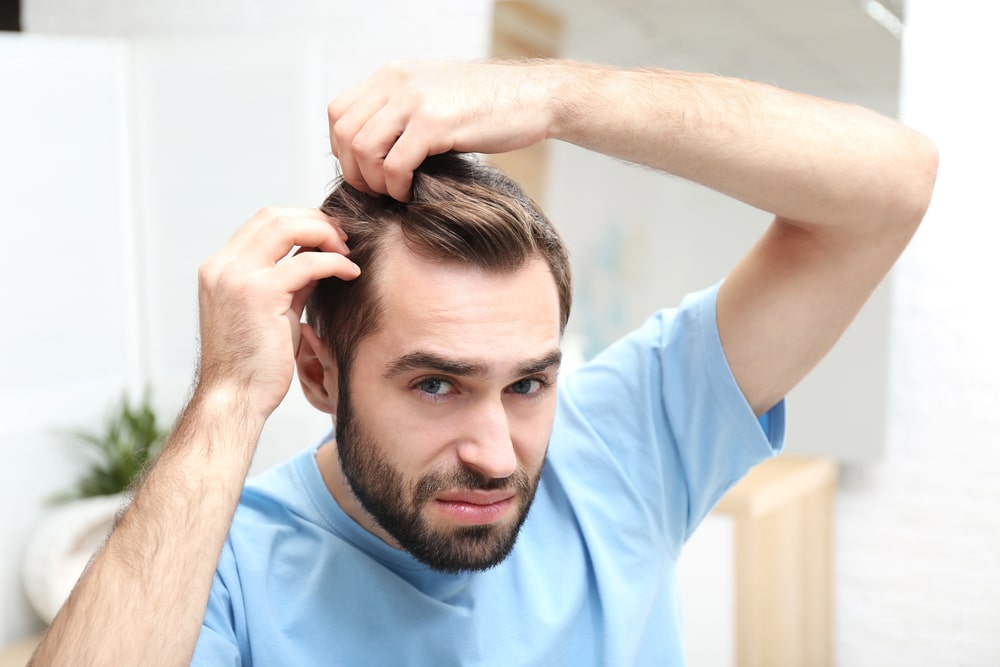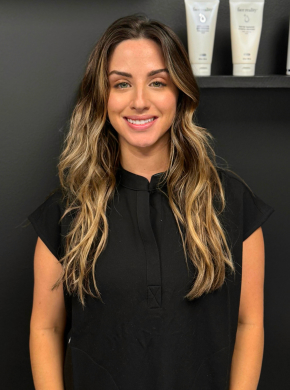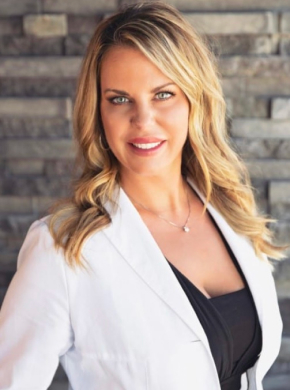Article At A Glance
- Male hair loss is most often linked to genetics, but hormonal shifts, environmental exposure, and lifestyle also play significant roles.
- Common conditions like androgenetic alopecia (male-pattern baldness) account for the majority of cases.
- Emotional and psychological effects of hair loss can greatly impact self-esteem and mental health.
- Effective solutions, including hair loss therapy and lifestyle adjustments, can help manage and even reverse hair loss.
Hair loss can be a challenging experience for many men, and it is a reality that millions encounter daily. While it is common to lose some hair as we age, for some individuals, this process can start much earlier. Understanding the reasons behind male hair loss and taking proactive steps can be empowering. This guide will explore the most common causes of hair loss, its emotional effects, and potential strategies to halt hair loss effectively.
Common Causes of Male Hair Loss
Hair loss in men is influenced by a variety of factors rather than being caused by a single issue. These factors include genetic predispositions, lifestyle choices, and environmental influences. Identifying the underlying cause of hair loss can help you find the most effective treatment options.
Common causes of hair loss include male-pattern baldness, stress-related thinning, and damage from environmental factors. Additionally, underlying health conditions and poor hair care practices can contribute to accelerated hair thinning. Given the numerous potential triggers, it is essential to understand each factor in detail.
Genetic Factors
Sometimes, hair loss can be traced back to your DNA. Genetics is one of the most significant contributors to male-pattern baldness, scientifically known as androgenetic alopecia. If male relatives in your family have experienced balding, you might as well.
This type of hair loss typically follows a recognizable pattern, starting with a receding hairline and thinning at the crown of the head. Over time, the affected areas may expand, often leaving a rim of hair along the sides and back.
So why do genetics play such a dominant role in hair loss? It primarily relates to how your body responds to certain hormones, particularly DHT (a byproduct of testosterone). Hair follicles that are sensitive to DHT tend to shrink, leading to thinning hair and, eventually, an inability to grow new hair. While you cannot alter your genetic makeup, being aware of your predisposition can help you explore hair loss treatments, such as medications or advanced therapies.
Hormonal Changes
Hormonal imbalances can significantly impact hair growth. Testosterone and its byproduct, dihydrotestosterone (DHT), are major contributors to hair loss in men. Elevated levels of DHT can shrink hair follicles, leading to thinning and eventual hair loss. Additionally, other hormones, such as cortisol—commonly linked to stress—can disrupt the natural hair growth cycle.
For example, chronic stress may result in a condition known as telogen effluvium, where hair follicles prematurely enter a “resting” phase, causing temporary but often widespread thinning of hair. Conversely, addressing hormonal imbalances through diet, medication, or stress reduction can revitalize hair follicles and slow the progression of hair loss.
Environmental Influences
The environment around you can take a toll on your hair health. Exposure to UV radiation, pollution, and toxins can weaken hair over time. Pollutants in the air, for example, settle on your scalp and can lead to inflammation, dryness, and even damage to hair follicles.
Even water quality plays a role. Hard water, rich in minerals like calcium and magnesium, can build up on your scalp and prevent proper moisture absorption, leaving you with brittle, thinning hair.
To protect your hair from environmental damage, consider nourishing treatments and shampoos designed to flush out pollutants. Of course, wearing a hat during prolonged sun exposure can help reduce UV-related damage.
Lifestyle Choices
Your daily habits can have a surprising impact on your hair health. Certain choices, often overlooked, may worsen hair loss or prevent your scalp from thriving. For instance, a nutrient-poor diet lacking essential vitamins like biotin, zinc, and iron can directly influence hair thinning. Your hair follicles rely on these nutrients to stay strong and support healthy growth. Similarly, dehydration can dry out your scalp and lead to weaker strands.
Interestingly, smoking has been shown to accelerate hair loss. The toxins in cigarettes affect blood flow to the scalp, depriving hair follicles of the nutrients and oxygen they need to grow. Additionally, alcohol consumption in excess can disrupt hormonal balance, leading to hair thinning.
Making simple lifestyle changes, like eating a balanced diet, staying hydrated, and reducing harmful habits, can foster healthier follicles over time.
Emotional and Psychological Impact of Hair Loss
Hair loss affects more than just physical appearance; it can also have profound emotional and psychological effects. For many men, thinning hair or visible bald spots can lead to reduced self-esteem and confidence. It can also impact social interactions, workplace dynamics, and even intimate relationships.
Many men report feelings of anxiety and isolation, especially during the early stages of hair loss. Over time, this emotional strain can lead to larger issues like depression.
It’s important to note that coping with hair loss is not just about external appearance but also accepting and addressing the internal responses it generates. Therapy, support groups, and taking proactive steps toward treatment can be immensely helpful.
Lifestyle Factors Contributing to Hair Loss in Men
Lifestyle factors, from the food you eat to how you manage stress, play an equally critical role in maintaining a full head of hair. Poor hair hygiene, tight hairstyles that pull at the scalp (traction alopecia), and overuse of heat-based styling tools are all avoidable contributors to hair thinning.
Excessive grooming, especially with harsh chemical products, can also strip the scalp of its natural oils, making hair brittle and prone to falling out. Neglecting scalp health allows oil and debris to build up, potentially clogging follicles and hindering growth.
Another overlooked factor is sleep. Chronic sleep deprivation disrupts your body’s natural repair processes. Just like your skin, your scalp relies on rest to recover and regenerate. Adopting healthy habits such as regular exercise, adequate sleep, and proper scalp care bridges the gap between vulnerability and resilience in your hair.
Hair Loss Therapy and Solutions
Fortunately, hair loss is a manageable condition, with countless options available depending on its cause and severity. Hair loss therapy can range from medical treatments to lifestyle interventions.
Medications like finasteride and minoxidil are FDA-approved options for addressing hair loss. While oral medications might reduce DHT levels, topical solutions help stimulate blood flow and encourage regrowth. For those seeking more extensive solutions, hair transplant surgeries offer a permanent fix by relocating hair follicles to thinning areas.
Are you considering non-invasive therapies? Platelet-rich plasma (PRP) treatments involve injecting your plasma into the scalp to rejuvenate hair growth, making them another advanced option that is gaining traction.
If you’re looking for drug-free options, try DHT-blocking shampoos or laser therapy caps. These can help improve scalp health and support hair growth. It’s important to act early—starting treatment sooner makes it more effective. With the right approach, you can work towards thicker, healthier hair.
Explore Solutions at Defiant Health Spa
At Defiant Health Spa, we understand how personal and challenging hair loss can be. That’s why we are dedicated to providing customized hair loss treatment services to help you regain your confidence and take control of your hair’s future.
With our innovative hair loss therapy options and a team of committed specialists, we are here to guide you toward a healthier scalp and stronger hair. Contact us today at (877) 777-7647 to learn more and take the first step toward restoring your confidence!






